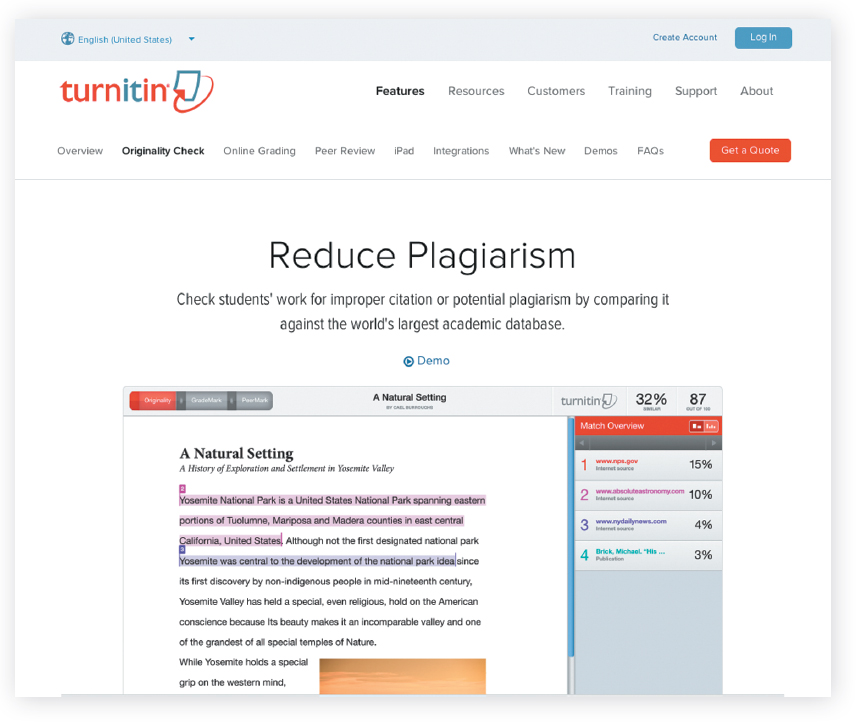About Plagiarism
Plagiarism is taking another person’s ideas or work and presenting them as your own. Plagiarism is unacceptable in a college setting. Just as taking someone else’s property is considered physical theft, taking credit for someone else’s ideas is considered intellectual theft. In written reports and papers, you must give credit whenever you use another person’s actual words, another person’s ideas or theories, even if you don’t quote them directly, or any other information that is not considered common knowledge.
Occasionally, writers and journalists who have plagiarized have jeopardized their careers. In 2012, columnist Fareed Zakaria was suspended for a week from Time and CNN for plagiarizing material from The New Yorker, an oversight for which he took full responsibility. In spring 2013, Fox News analyst Juan Williams was criticized for plagiarizing material from a Center for American Progress report in a column he wrote for a political insider publication, but he blamed his research assistant. Also in 2013, Republican senator Rand Paul of Kentucky found himself in trouble over accusations that he plagiarized portions of his book and several of his speeches. Even a few college presidents have been found guilty of borrowing the words of others and using them as their own in speeches and written documents. Such discoveries may result not only in embarrassment and shame but also in lawsuits and criminal actions.
Plagiarism can be a problem on all college campuses, so instructors are now using electronic systems such as Turnitin (turnitin.com) to identify plagiarized passages in student papers. Many instructors routinely check their students’ papers to make sure that the writing is original. Some students consider cheating or plagiarizing because they think that doing so will help them get a better grade, but you can avoid the temptation if you keep in mind the high likelihood of getting caught, as well as the serious consequences that will follow if you do get caught.

Because there is no universal rule about plagiarism, ask your instructors about the guidelines they set in their classes. Once you know the rules, plagiarism is easy to avoid. Keep careful notes as you do your research, so that later on you don’t mistake someone else’s words or ideas for your own. Finally, be sure to check out your college’s official definition of what constitutes plagiarism, which you will find in the student handbook, college catalog, college Web site, course syllabi, or first-year course materials. If you have any questions about what is and isn’t acceptable, be sure to ask someone in charge.
It should go without saying (but we’ll say it anyway) that intentional plagiarism is a bad idea on many levels. Aside from the possibility of being caught and the potential for punishment—a failing grade, suspension, or even expulsion—submitting a paper purchased from an Internet source, copying and pasting passages from someone else’s paper, or lifting material from a published source will cause you to miss out on the discovery and skill development that research assignments are meant to teach.